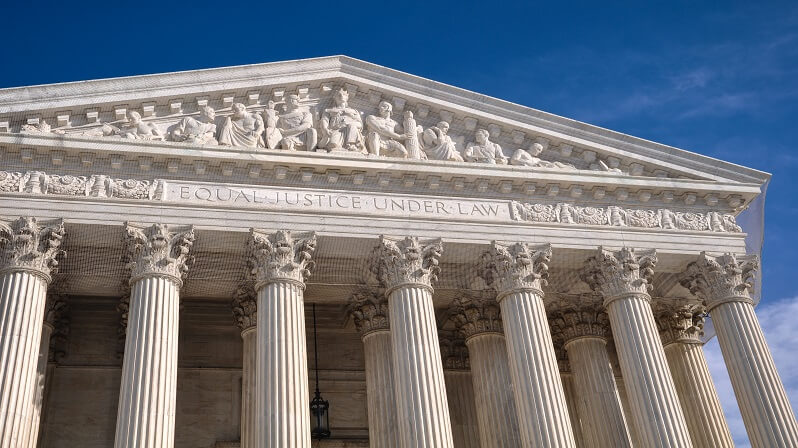Dallas Misdemeanor Attorneys Handle Criminal Mischief Charges
Dallas misdemeanor attorneys encounter many Criminal Mischief cases. Criminal Mischief is a property crime that involves damaging, tampering, or marking graffiti on someone’s property. Such an act must have caused pecuniary loss or substantial inconvenience and must have been done without the owner’s effective consent. Criminal Mischief is a wide-ranged offense; the penalties can go from a Class C misdemeanor to a First Degree Felony.


Criminal Mischief
The Texas Penal Code specifies that “A person commits Criminal Mischief if, without the owner’s effective consent, he intentionally or knowingly damages or destroys the tangible property of the owner”.
This means that they were aware of the consequences of their actions. In other words, it was their goal to cause the damage. Establishing intent is key to conviction. No crime is committed if they had no idea what they were doing or had zero intent of causing damage to the property.
There are cases where the properties were damaged individually by that same person or group with the same intent or overall pattern of activity. If several pieces of property were damaged or destroyed continually, the act could be prosecuted in one case. For example, if someone separately damaged three pieces of equipment, the victim could file one State Felony case instead of charging three Class A Misdemeanor cases. The act is referred to as a continuous course of behavior by the law.
Criminal Mischief Under Misdemeanor Penalties
- Class C misdemeanor is penalized by a fine of not more than $500 if the monetary loss is less than $100 or the offense causes significant discomfort to others.
- Class B misdemeanor is penalized by a fine of not more than $2000 and up to 180 days jail time if the monetary loss is more than $100 but less than $750.
- Class A misdemeanor is penalized by a fine of not more than $4000 and up to 1 year jail time if the monetary loss is more than $750 but less than $2,500.
Criminal Mischief Under Felony Penalties
- State Jail Felony involves 180 days to two years in jail and a maximum fine of $10,000 if the property involved is damaged or destroyed costs at least $2,500 but not more than $30,000.
- Third Degree Felony involves two to ten years in jail and a maximum fine of $10,000 if the property involved is damaged or destroyed costs at least $30,000 but not more than $150,000.
- Second Degree Felony involves two to twenty years in jail and a maximum fine of $10,000 if the property involved is damaged or destroyed costs at least $150,000 but not more than $300,000.
- First Degree Felony involves five to ninety-nine years in jail and a maximum fine of $10,000 if the property involved is damaged or destroyed costs over $300,000.
Defense Against Criminal Mischief Case
If someone faces a Criminal Mischief case, hiring a seasoned Dallas misdemeanor attorney who thoroughly investigates the suit is necessary. The Medlin Law Firm in Texas provides services to ensure their clients’ rights are secured, and the latter are well-informed about their cases.
A competent criminal defense attorney will examine the facts to guarantee that law enforcement officers enforced the law and did not misuse their authority during the investigation. They will also thoroughly evaluate key witnesses and all evidence to assess the case’s merits accurately.
The following are some of the most common defenses to criminal mischief:
1. Debunking Criminal Intent
The victim frequently assumes that the individual who allegedly caused the harm to their property did it on purpose. However, a person can only be charged with Criminal Mischief if the prosecution can prove that the damages were intentionally or knowingly inflicted. A Dallas misdemeanor attorney’s responsibility is to sift through the facts and consider the whole picture to see if there is evidence of criminal intent.
2. Evaluate The Severity Of The Claimed Harm
How did the alleged victim calculate the amount of damage? This question should always be asked by the person who is being charged. Remember that if the damage assessment does not add up, the defense Dallas misdemeanor attorney must thoroughly investigate the source and credibility of that damage estimate.
The defense attorney can acquire information about the alleged harm and request an independent appraisal of the damage’s value. After that, the victim’s side could draft a legal document. This may contain a lower estimate than previously presented. As a result, the defendant could appeal to lower the criminal charge.
3. Pay For The Damages
Most cases of Criminal Mischief have money at the heart of them. The victim usually asks for money to pay for the damage. One way to get a Criminal Mischief charge dropped is to get the funds needed to pay the victim. This will lead to a dismissal of the charge.
4. Keep The Statute Of Limitations In Mind
In Texas, the statute of limitations for property damage lawsuits is two years. Any claim for financial compensation for damage or destruction of property must be made within this time. The court will likely dismiss the charges if a case is filed beyond this period.
This means that the victim is waiving their legal right to claim compensation for property damage. Once the statute of limitations has passed, the accused will be qualified to have their Criminal Mischief offense wiped from their criminal record.
Separate Litigation For Felony Cases
Suppose the Criminal Mischief charge is a felony in Texas. In that case, a Dallas criminal attorney should create a grand jury packet with the collected evidence. They have to present it before the grand jury. A grand jury is a group of individuals. They evaluate felony criminal cases to establish probable cause to move the case ahead in the legal system.
The Dallas misdemeanor attorney will first present their evidence. Then, the grand jury may decide whether to maintain the allegation as a Felony Criminal Mischief. They can also reduce it to a minor Misdemeanor Criminal Mischief. However, if the accusation lacks sufficient evidence, the court could dismiss the case. As a result, their attorney can obtain a No Bill. With this, the accused can have all documents connected to the case wiped from their criminal record.


7 Common Types Of Property Destruction
Prank
What one person thinks of as a prank may be a crime for the person who is the target of the act. It doesn’t matter if it was meant to be a joke. If there is any damage, they could be held liable and charged with Criminal Mischief.
Vandalism
Vandalism can range from pulling down street signs to spraying on people’s property. It is illegal to deface other people’s property. Criminal Mischief rules apply to this, and based on the damaged property’s value, it can be a severe offense.
Riot
A person is performing Criminal Mischief if they destroy public or private property amidst a riot. They are chargeable regardless of the motive for the riot if the property owner or the authorities want.
Car Damages
Car damages include things like keying, slashing tires, or causing other damage to other people’s vehicles. Eye witness reports or CCTV surveillance footage are used frequently as evidence in these cases.
Tampering With Utility Services
Anyone who damages, removes, relocates, destroys, or tampers with utility service devices or facilities is committing a crime. An example of this is putting an attachment to obstruct a meter’s proper registration, disturb its adequate functioning, or minimize the utility service rate.
Arson
Arson is when an individual willfully and maliciously employs fire or explosives to damage property. The sentence will be based on the damage done to the property and its occupants.
Graffiti
This is the use of e paint, an indelible marker, or engraving equipment to mark another’s property. These properties include inscriptions, slogans, illustrations, paintings, or blank walls.
Interference with Railroad Property
The person who causes damage to a train, rail equipment, or other railroad property can be arrested by a Texas officer. Intrusion on railroad grounds or causing a train derailment are examples of this offense. As a result, they are detainable for a misdemeanor or felony case.
Seek Legal Advice From Dallas Misdemeanor Attorneys
Misdemeanor charges can have terrible consequences. However, a Dallas misdemeanor attorney knows what to expect at each step. A good lawyer ensures that their clients are ready for all court appearances.
The criminal lawyers of the Medlin Law Firm have represented people accused of criminal charges for decades. They solely focus on criminal defense. They have assisted thousands of clients charged with crimes in Dallas County and across Texas. Visit their website at https://www.medlinfirm.com/ or contact them at (682) 204-4066 for a free evaluation!
(214) 888-4810 We cannot receive pictures via text so please send those via email or hand deliver to our office.
(214) 888-4810 No podemos recibir imágenes por mensaje de texto, así que envíelas por correo electrónico o entréguelas personalmente en nuestra oficina.






